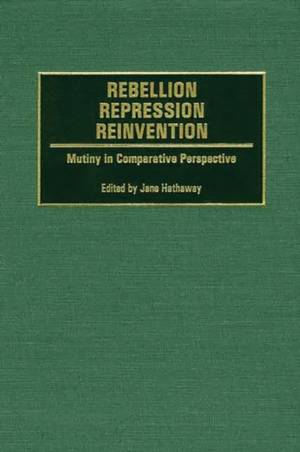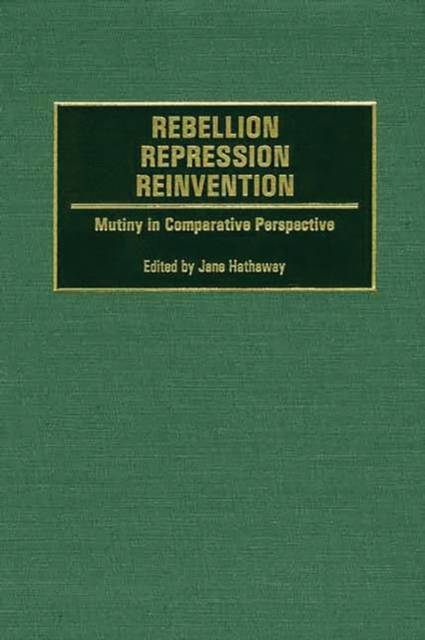
- Afhalen na 1 uur in een winkel met voorraad
- Gratis thuislevering in België vanaf € 30
- Ruim aanbod met 7 miljoen producten
- Afhalen na 1 uur in een winkel met voorraad
- Gratis thuislevering in België vanaf € 30
- Ruim aanbod met 7 miljoen producten
Rebellion, Repression, Reinvention
Mutiny in Comparative Perspective
Jane HathawayOmschrijving
This is the first book to address the topic of mutiny in and of itself, or to present mutiny in a comparative framework. The fourteen contributors, a mixture of military, social, and political historians, examine instances of mutiny that occurred from ancient to modern times and on nearly every continent. Their findings call into question standard definitions of mutiny, while shedding new light on the patterns that mutiny tends to take, as well as the interactions that can occur between mutinous soldiers and surrounding civilian societies. While standard definitions of mutiny emphasize mass defiance by rank-and-file soldiers of the orders of their military superiors, the essays here demonstrate that mutiny can often take other forms.
Mutiny could consist of mass desertion, insurgency in the face of competing military and political authorities, or lengthy strings of strikes and assassinations against military and political superiors. The threat of mutiny, furthermore, could be as potent as an actual outbreak. Areas studied include early modern Europe, the Ottoman Empire, the antebellum United States, the British Empire, revolutionary Russia, the emerging nation-states of Latin America, imperial and Communist China, fascist Italy, war-torn Vietnam, and Nasser's Egypt. In the concluding section, contributors assess commemorations of mutiny and how they are modified or distorted in the process of their incorporation into official and popular memory.Specificaties
Betrokkenen
- Auteur(s):
- Uitgeverij:
Inhoud
- Aantal bladzijden:
- 304
- Taal:
- Engels
Eigenschappen
- Productcode (EAN):
- 9780275970109
- Verschijningsdatum:
- 30/07/2001
- Uitvoering:
- Hardcover
- Formaat:
- Genaaid
- Afmetingen:
- 156 mm x 247 mm
- Gewicht:
- 648 g

Alleen bij Standaard Boekhandel
Beoordelingen
We publiceren alleen reviews die voldoen aan de voorwaarden voor reviews. Bekijk onze voorwaarden voor reviews.











